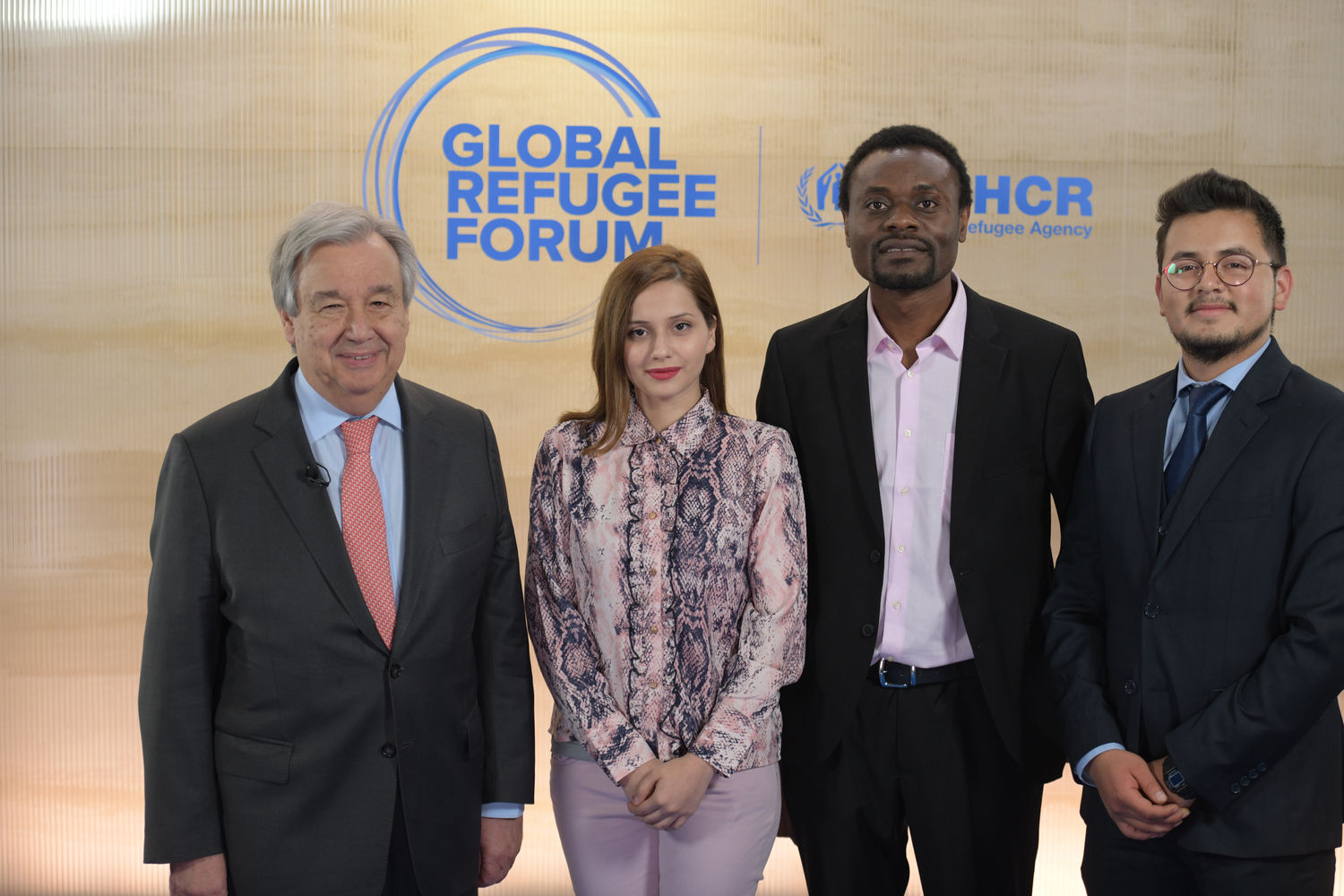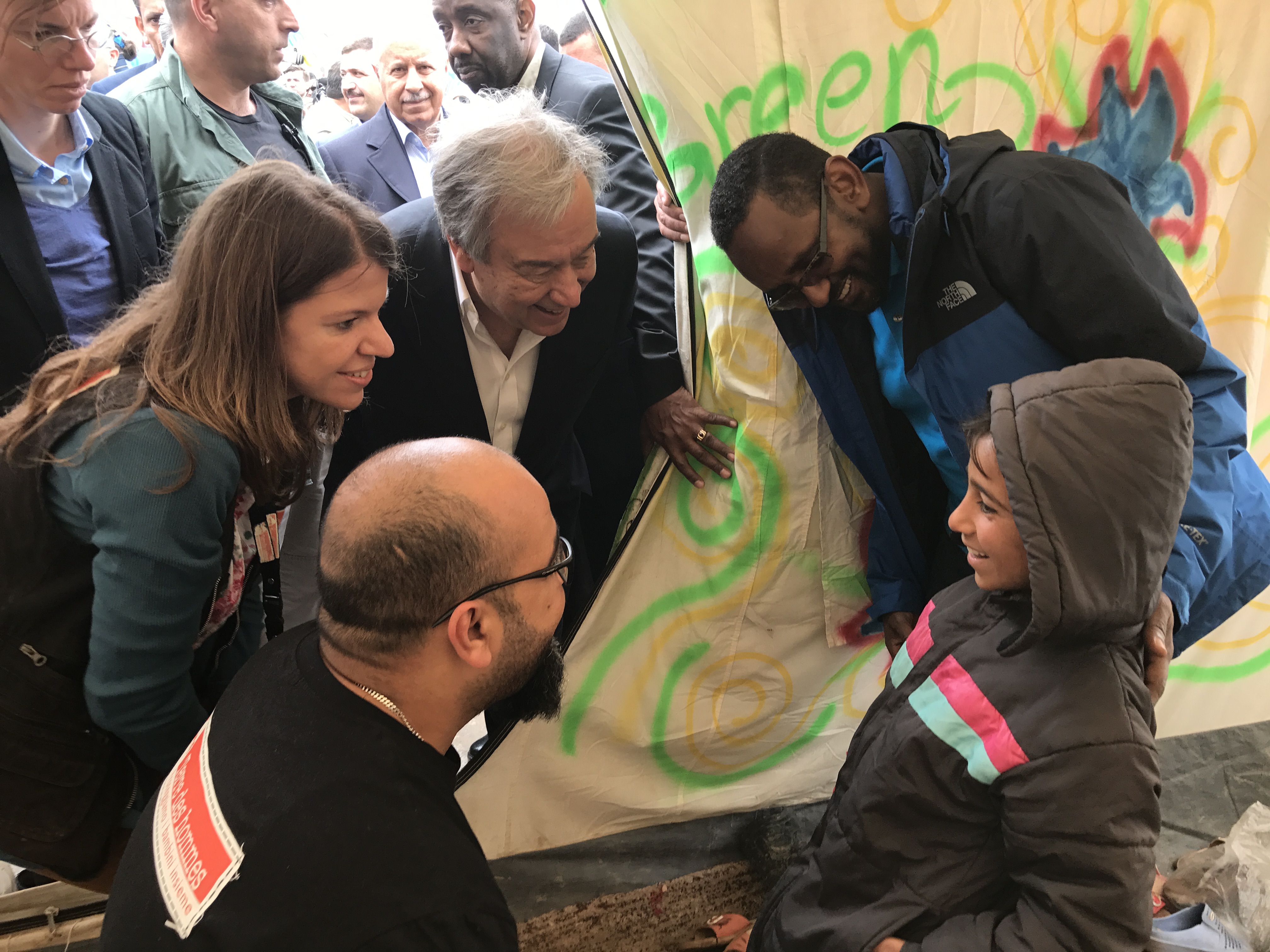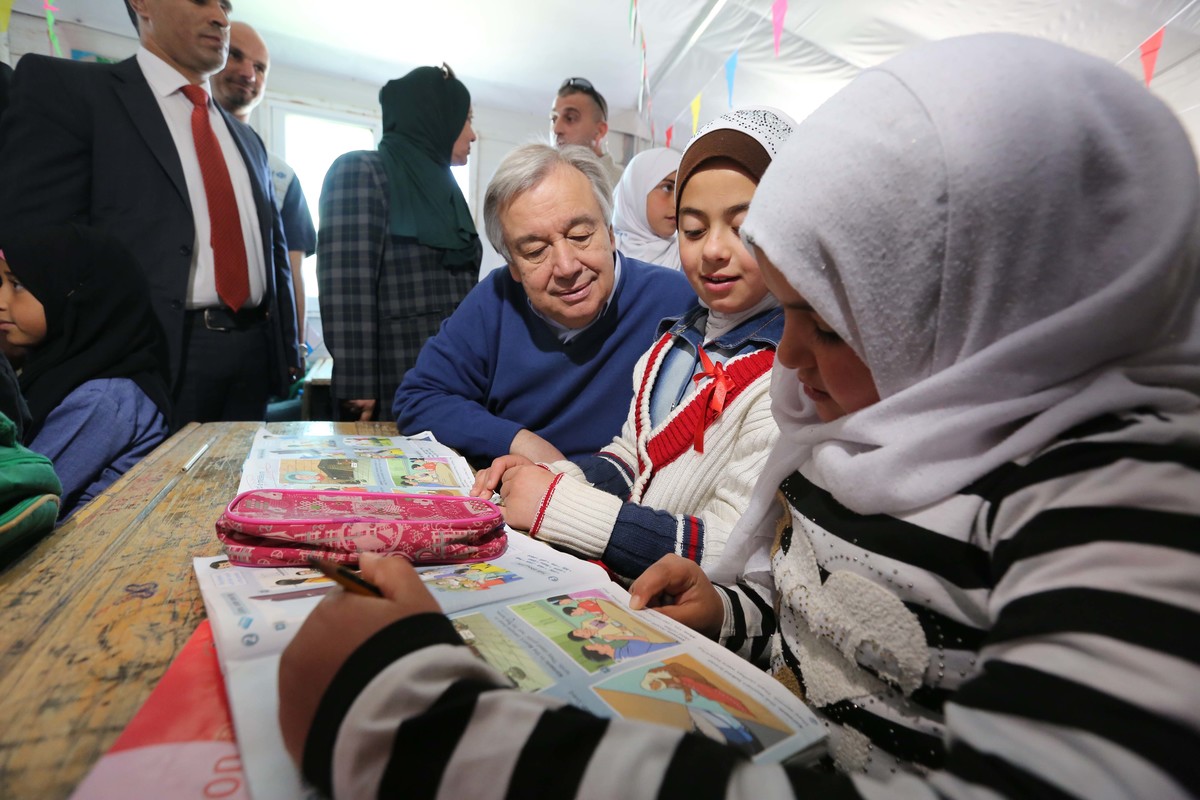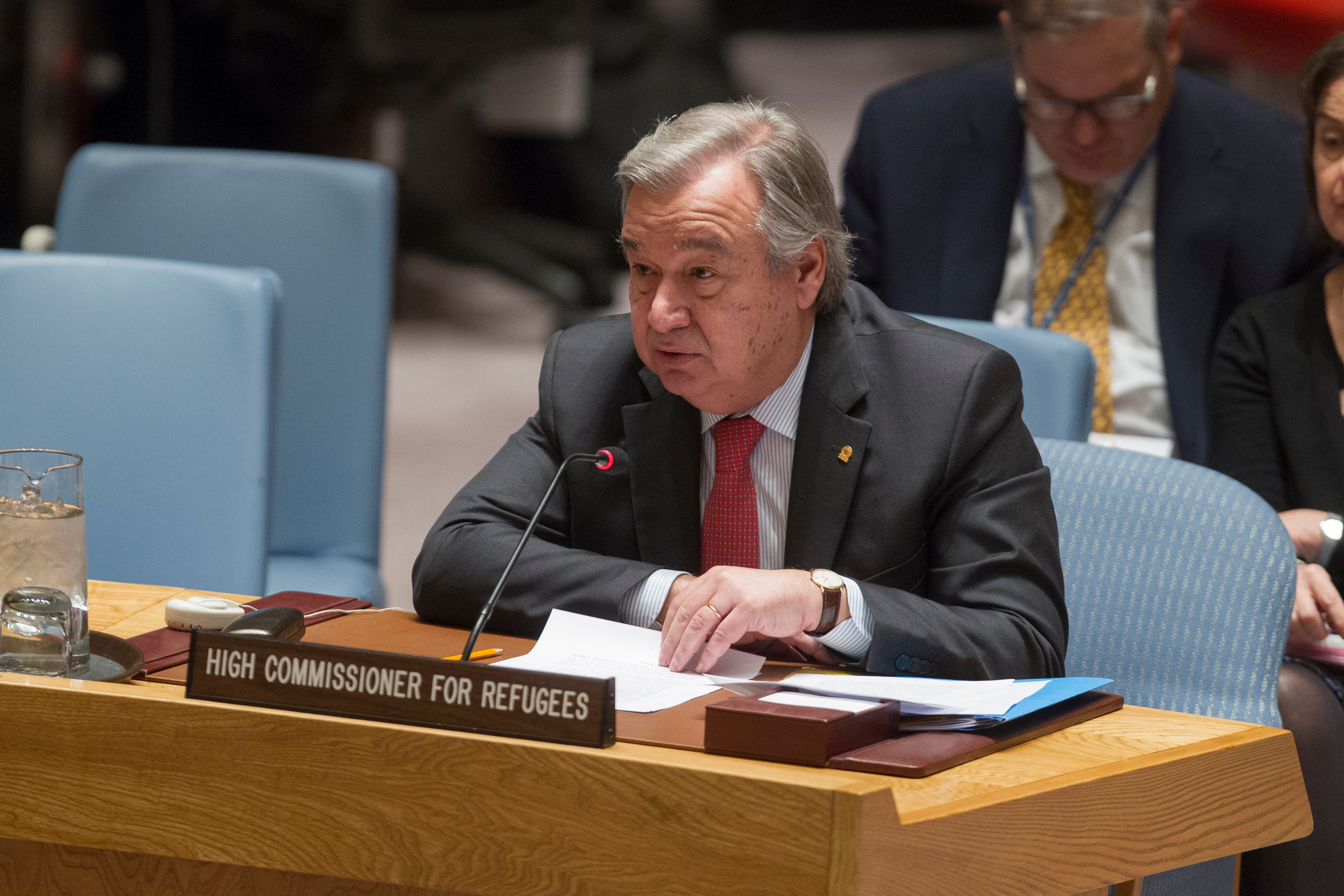UNHCR chief Guterres meets Grand Ayatollah Al-Sistani in Iraq
UNHCR chief Guterres meets Grand Ayatollah Al-Sistani in Iraq

NAJAF, Iraq, November 27 (UNHCR) - UN High Commissioner for Refugees António Guterres met Thursday with Iraq's Grand Ayatollah Ali Al-Sistani in the holy city of Najaf, briefing the respected spiritual leader on UNHCR's work on behalf of the world's uprooted people.
Guterres, wrapping up a three-day mission to Iraq, told Al-Sistani he considered his visit symbolic on the eve of the Eid al'Itha (sacrifice) holiday.
"I undertook this mission at this time to show solidarity with our staff - who come from many cultures and religious traditions - and with the refugees we serve," the High Commissioner said. "I am honoured to meet Grand Ayatollah Al-Sistani in this holy city and I want to express UNHCR's solidarity with all of the Iraqi people. Many Iraqis have resumed normal lives following the upheaval in their country, while others continue to face hardship."
The High Commissioner praised the Grand Ayatollah for his tireless efforts toward reconciliation and stability in Iraq. He also explained UNHCR's Iraq operation and its global mission in some 120 countries on behalf of more than 32 million uprooted people, whom he described as the most vulnerable of the vulnerable.
Guterres, who was accompanied by Staffan de Mistura, the UN Secretary-General's special representative in Iraq, said UNHCR's operations for uprooted Iraqis had until now focused primarily on refugees in neighbouring states, mainly Syria and Jordan. He told Al-Sistani that the two nations deserved praise for their generosity to Iraqi refugees. UNHCR supports both nations' efforts to assist the Iraqi refugees.
With the improved security situation in Iraq, including in Najaf itself, UNHCR was now moving toward increasing its presence in the country and stepping up its activities on behalf of internally displaced people and returning refugees, the High Commissioner said. The agency is doubling its budget to US$81 million in 2009 and increasing the number of provincial offices from the current 10 to 14, covering the whole country.
"More than 140,000 Iraqis returned to their homes between June and October of this year, the vast majority of them internally displaced people," said Guterres, who also visited the city of Ramadi, in Anbar province, on Wednesday. "We are fully committed to cooperating with the Iraqi government in continuing to establish the necessary conditions for further voluntary returns in safety and dignity."
During his mission, Guterres discussed with Iraqi government officials a variety of steps toward successful and sustainable return, including property restitution and compensation, reintegration and basic services and public distribution systems and cutting bureaucratic red tape to make assistance more efficient.
Guterres also met in Najaf with Governor Assad Sulran Abu Gelal and members of the provincial council. Although Najaf has produced no internally displaced people, it currently hosts more than 8,000 families uprooted from elsewhere in the country.
UNHCR staff in the area are supporting local authorities in providing humanitarian assistance to the displaced and are also assisting those who wish to return to their places of origin.
In addition to refugees, there are an estimated 2.4 million internally displaced Iraqis.
By Ron Redmond in Najaf, Iraq








